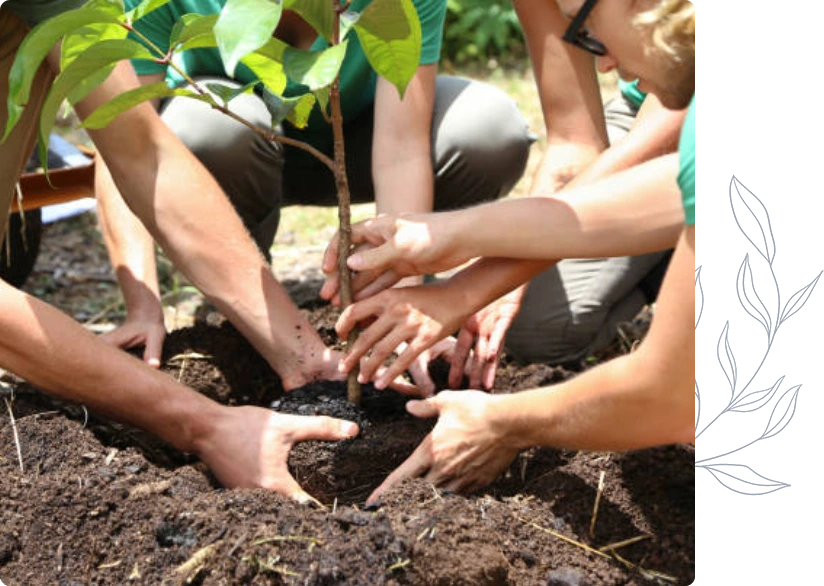Holistic Nourishment (Ahaar) is an outcome of purposeful engagement in activities that draw your attention to the now - the present moment.
Gardening and Nature walks are physical activities that can serve as effective forms of eco therapy. Engaging with nature can promote mindfulness as it encourages you to be fully present in the moment, taking in the sights, sounds, and smells around you. Studies show that exposure to nature can enhance mood and alleviate symptoms of stress and anxiety; leading to lower cortisol levels, and heart rate and helping to restore attention and improve cognitive function.
This phenomenon is called attention restoration theory. The calmness and beauty of nature can stimulate creative thinking. Gardening can provide opportunities for social interaction if you are involved in community gardens. This can foster a sense of belonging and community, which is crucial for emotional well-being. Taking care of plants in a garden can give a sense of purpose and responsibility, which can contribute to overall well-being. Successfully growing a plant can boost self-esteem and confidence.


Engaging with oneself is a key aspect of mindful living. It involves activities that cultivate self-awareness, self-acceptance, self-care, and acknowledging our own mistakes. Engage in activities that nourish your mind, body, and spirit. This might include healthy eating, regular exercise, adequate sleep, hobbies that you enjoy and spending time in nature. Practice kindness toward yourself, especially when you make mistakes or face challenges, to help build resilience. Mindfulness Meditation involves focusing your attention on the present moment, without judgment.
This can be done through formal sitting meditation or during everyday activities like walking, eating, or even washing dishes. It helps you become more aware of your thoughts, feelings, and sensations, and it reduces stress, anxiety, and negative thinking. Journaling is a good way to express emotions, explore thoughts, reflect on experiences, and track growth over time. Mindful Breathing, Yoga and Body Awareness helps to enhance body awareness and foster a mind-body connection. Practicing gratitude shifts your focus from what's wrong in your life to what's good, promoting happiness and contentment.

